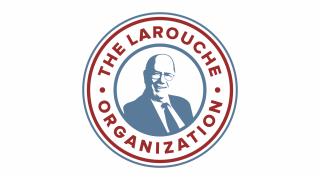Feb. 9, 2025 (EIRNS)—The first three weeks of the Trump Administration have without a doubt been tumultuous, and the results of its various actions are still too early to judge. The central question remains whether, with a new President at its helm, the United States will attempt to maintain the existing post-Cold War hegemony over the world, or if it will join the growing chorus of nations seeking a new security and development architecture free from the trappings of geopolitical machinations. Reality demands that it be one or the other, and any attempt to ignore this while solely insisting on “America First” will only run into problems and contradictions.
There is heightened diplomacy going on around the world. Egypt announced Feb. 9 that it will be holding an emergency summit on Palestine at the end of the month in order to solidify a unified position throughout Southwest Asia. Meanwhile, there has been massive condemnation to both Trump’s comments about Gaza and also to Netanyahu’s rejection of a Palestinian state. Top officials across the Arab world delivered scathing statements against that over the recent days.
Even more urgent is the beginning of phase two negotiations for the hostage and ceasefire deal between Israel and Hamas, set to begin as Israel’s delegation arrives in Qatar on Sunday, Feb. 9. However, there are worries that the talks are in danger of collapsing, spurred on by Netanyahu’s flagrant attitude toward a future Palestinian state and demand that Hamas be banned from the Gaza Strip forever. Haaretz quoted Israeli sources Sunday who said Netanyahu knows this and is trying to sabotage the peace talks in order to continue the war and hold onto power. His apparent favor with Trump was likely not helpful to dissuade him.
Later in the week, Vice President J.D. Vance and Special Envoy for Ukraine and Russia Keith Kellogg will head to the Feb. 14-16 Munich Security Conference where they will reportedly begin talks with Ukraine’s Zelenskyy and others. Whether their efforts will result in bringing the Ukraine war to a close or not is still to be seen. Reports also emerged over the weekend that Trump may have had one or more phone conversations with Russian President Vladimir Putin, which is also promising.
While these flurries of diplomacy are proceeding, there continue to be moves to unravel, or at least expose the “deep state” in the U.S. More are beginning to see the underlying rot of USAID and related institutions, which were merely fronts for regime-change efforts worldwide. The most recent revelation was USAID’s nearly $500 million expenditure for an NGO called “Internews Network.” This government-bankrolled monstrosity allegedly supported “independent media,” and according to WikiLeaks had ties with close to 4,300 media outlets in 30 countries. In addition to these revelations, the Senate vote to confirm Tulsi Gabbard as DNI will occur on Monday, Feb. 10, presenting a significant opportunity to finally free the U.S. Presidency from its control by the Anglo-American Five Eyes intelligence apparatus.
The guiding question in all this, however, is whether the U.S. will respond to the changed realities taking place in the world, or cling to old, unnatural ways of thinking. That question was posed by Prof. Zhang Weiwei of China’s Fudan University on Feb. 5 when he stated: “When the rules of the road no longer reflect the realities of the road, three things can happen: either the institutions are reformed, new institutions are built, or countries take unilateral action—even war, if necessary.” That is, natural law cannot be ignored forever.
The most opportune development that now presents itself in this regard is the crisis in Gaza. If the U.S. were to see that a rebuilt, prosperous, and free State of Palestine is in its interests—as it is for China, Russia, and the other countries of the region—then the notion of the common aims of mankind can be introduced, and natural law acted upon. It would be a real “win-win,” as opposed to the detestable proposals of “win-lose” that are now being circulated, and would have repercussions around the world far beyond Gaza.
The LaRouche Oasis Plan is the best and only realistic option in this regard, and should everywhere be organized for in the coming days and weeks.






